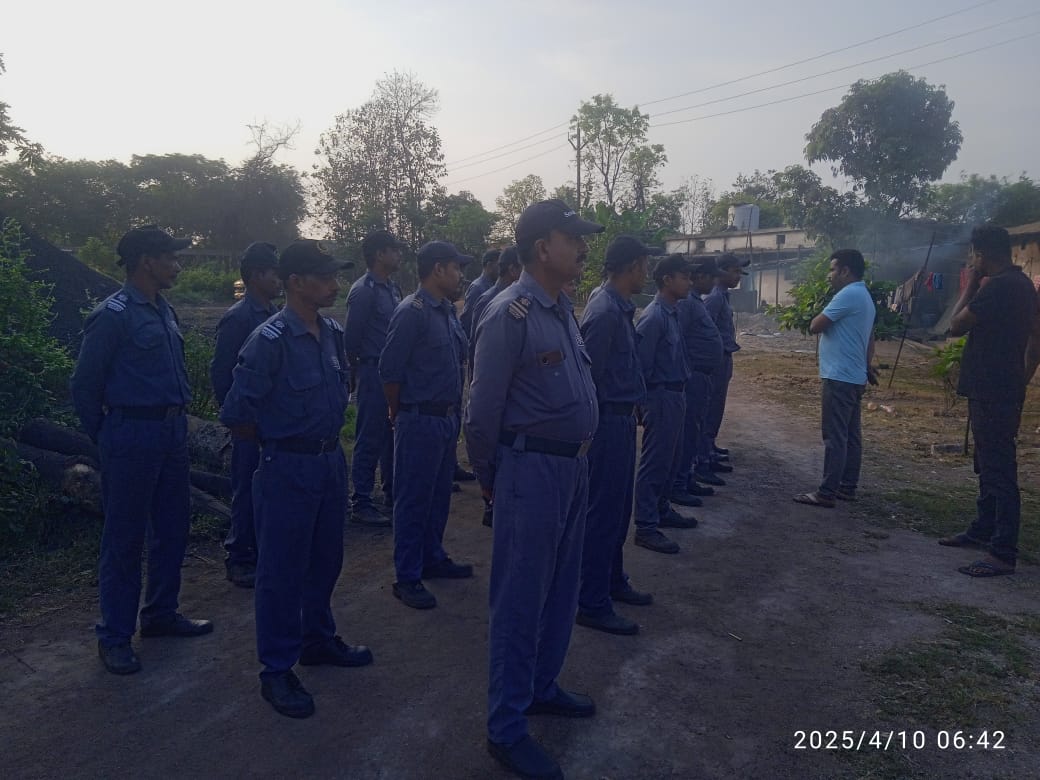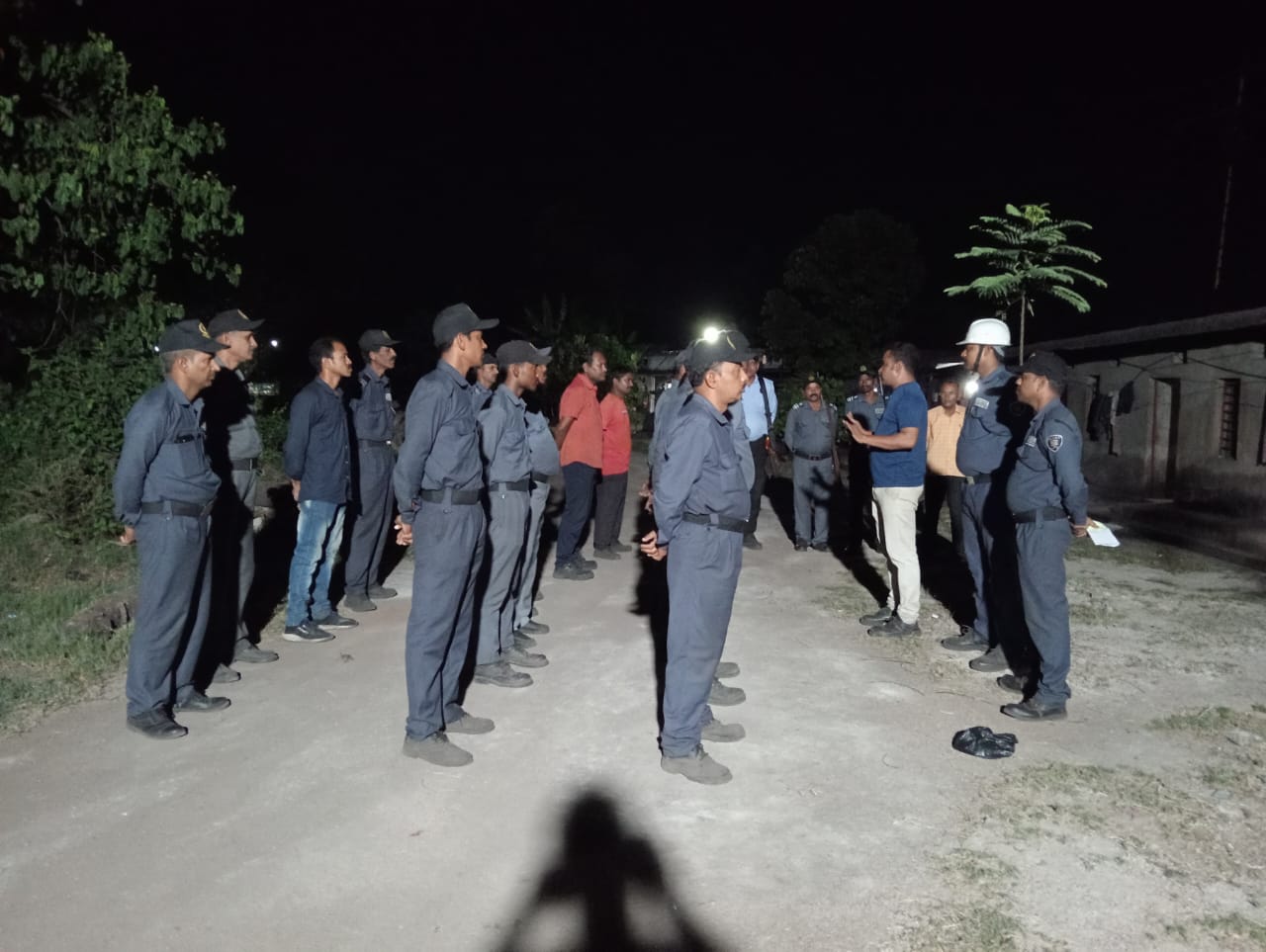Roll call is a briefing prior to the start of a shift where supervisors take attendance, inspect uniforms and equipment, inform the oncoming shift of any outstanding incidents that may have occurrred, inform officers of suspects to be looking out for, relate any law or procedural changes and so on. Any procedural issues or agency-specific issues is usually done at roll call, which is a shift briefing prior to the beginning of a daily tour of duty.

Roll Call Briefing by Metro Guards Security Officer at GM Iron
Roll call is a critical component of a security agency’s daily operations, serving
as a structured briefing session prior to the start of each shift. It is during
this time that supervisors conduct essential preparatory activities to ensure
guards are fully equipped, informed, and ready for duty. The process typically
begins with taking attendance, followed by a thorough inspection of uniforms
and equipment to confirm that all personnel meet professional standards and
have the necessary tools for their assignments.

Roll Call Briefing by Metro Guards Security Officer at GM Iron
Beyond physical readiness, roll call serves as a vital communication channel between supervisors and guards. It is here that the oncoming shift is briefed on any
outstanding incidents or issues that occurred during the previous tour of duty.
This may include updates on security breaches, property damage, or ongoing
investigations. Additionally, officers are informed of persons of interest or
suspects to watch for, enhancing situational awareness and ensuring a
coordinated response throughout the facility or site.
Roll call also provides an opportunity to communicate updates that may impact daily operations or guard responsibilities. This includes notifying
the team of any recent changes in laws, agency protocols, or site-specific
procedures that affect how duties should be performed. Supervisors may outline revised emergency response plans, updated post assignments, or new client expectations. By sharing these details at the beginning of the shift, the agency ensures that all personnel are aligned, compliant, and prepared to perform their roles with accuracy and professionalism.
In essence, roll call is more than just a routine formality; it is a cornerstone of operational readiness, accountability, and communication within a security team. By
maintaining a structured roll call process, security agencies reinforce discipline, enhance team coordination, and uphold the standards of professionalism necessary to protect lives and property effectively.